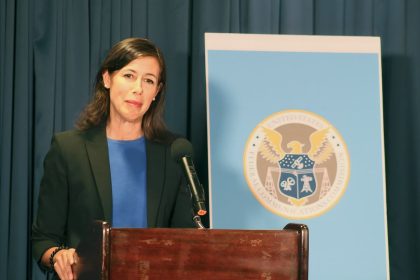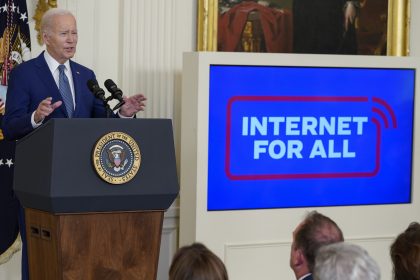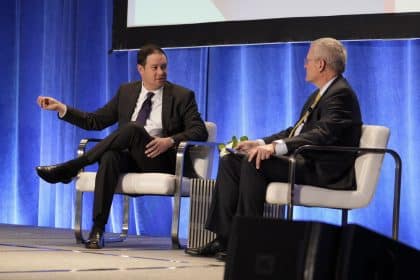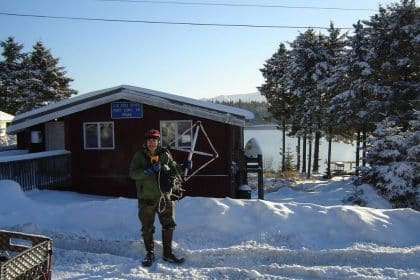Congress Looks to Broadband to Boost Telecommunications
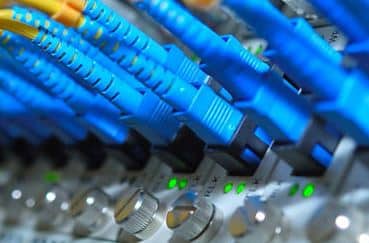
WASHINGTON — Disputes in Congress on how much tax money should be invested in infrastructure continued during a hearing Wednesday on expanding broadband telecommunications access.
Broadband refers to data transmission over a wide range of frequencies through optical fiber, wireless radio and satellite signals. It is most commonly used for internet and wireless telephone communications.
However, it often is inaccessible in rural communities and among low-income households.
A representative of the Competitive Carriers Association, a trade group for wireless connectivity providers, told a congressional panel that broadband is moving from a convenience to a necessity.
“Full participation in today’s society, including work, health care, education, entertainment, news, social engagement, and an ever-growing list of applications depends on access to robust connectivity in all corners of the United States,” said Tim Donovan, a vice president for the Competitive Carriers Association.
Internet use by consumers has grown from 52% of U.S. adults in 2000 to 93% in 2021, according to a Pew Research Center study released in April.
Broadband’s importance will mushroom as industry moves toward implementing 5G telecommunications, which refers to the fifth generation of broadband communications, Donovan said. Its higher data speeds, greater reliability and massive network capacity are expected to transform business and personal communications.
“Every industry segment of our economy will be impacted by 5G wireless services,” Donovan said.
The Biden administration, along with congressional Democrats, want to vastly expand the network of telecommunications towers and other infrastructure to broaden broadband’s reach and to lower prices for consumers.
Like much of President Biden’s Build Back Better Plan, they say the economic development it offers would provide the return on investment needed to pay for it.
Republicans are questioning whether the infrastructure investment is worth the money when it could contribute to inflation and sink the U.S. economy deeper into debt.
A House Energy and Commerce subcommittee is considering 12 bills that would guide additional government investment into broadband.
One of them would require the Federal Communications Commission to coordinate efforts among federal agencies that serve rural areas to extend broadband to them.
A second bill would expand broadband on federal land, such as national parks. A third sets standards for local governments to review and approve telecommunications companies’ applications to build or modify their infrastructure.
Lawmakers have touted the economic benefits of broadband for years. The COVID-19 pandemic gave their proposals greater urgency as many employees turned to telework and schoolchildren were forced into virtual learning.
All of it requires broadband, which benefited workers and students with access to it but hurt those who lacked the telecommunications systems.
“We have all seen the stark reality highlighted by the pandemic that broadband is a necessity,” said Rep. Michael Doyle, D-Pa., chairman of the subcommittee on communications and technology.
Another push toward more broadband is coming from wildfires spurred by global warming. As the fires raged and cut off landline communications, some residents of western states were left with no communications systems to help them respond to the emergencies.
Wildfires are far from the only emergencies that confront the United States, which also is being hit by hurricanes, tornadoes and floods.
A separate congressional hearing is scheduled for Thursday on a related issue of emergency communications. A House Homeland Security subcommittee plans to review whether telecommunications have improved that could help emergency responders in another Sept. 11 style of attack.
“We should examine how connectivity can protect us in an emergency,” Doyle said.
A representative of the National League of Cities agreed that more federal government investment in broadband was needed but added that local governments should be granted authority to develop their own telecommunications solutions.
“Federal solutions should support and empower this leadership, rather than imposing a one-size- fits-all edict, when considering what further improvements should be made,” said John Fogle, who chairs the National League of Cities’ information technology committee.
As with other Biden administration infrastructure proposals, some Republicans said the proposed broadband legislation could represent illicit spending and too much government meddling in the economy.
Rep. Richard Hudson, R-N.C., said a dash toward too much government support of broadband could represent “reckless levels of funding.”


















